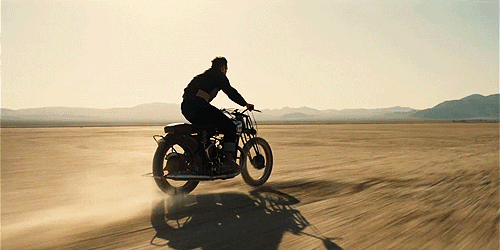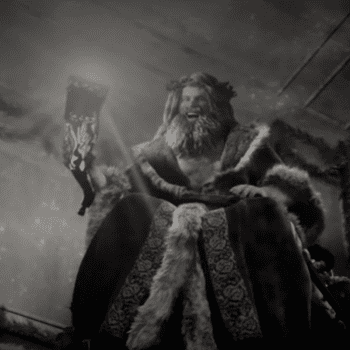Emotional abuse is an actual thing.I know because I was abused this way by an authority figure for the better part of my life.

The difficult thing about emotional abuse is that it doesn’t get the press it deserves. There is no physical evidence – no bruises, no DNA – so the experience is not easy to justify, to explain, to believe. Perpetrators will rarely stand trial unless their abuse has led to some other more tangible crime. As a result, victims are typically caught in a cycle of anxiously desiring escape while assailed by shame and self-doubt, with no real means to make a break anyway.
In the words of one therapist, “In some respects, emotional abuse is more devastating than physical violence, due to the greater likelihood that victims will blame themselves.”
And perhaps this is especially true if that abuse comes clothed in Christianity.
///
When the news of Philip Seymour Hoffman’s death hit my feeds, I couldn’t for the life of me figure out why I felt so sad. Celebrities and public figures die tragically, before their time, all the time. Paul Walker passed only a few months before, and I thought it terribly sad but didn’t feel any sadness. Know what I mean?
But my throat tightened and eyes welled up almost immediately at the news of PSH’s accidental overdose.
Paul Walker and PSH were very different actors, to be sure. Hoffman was just on another level, virtually perfecting the art of the sympathetic, tortured, insecure, intelligent, often devious character, with a kind of flourish that made each performance impossible to forget. But his inimitable acting wasn’t the thing driving me to tears. There was something else.
As I combed through the initial articles online, it finally hit me.
///
Coming to terms with emotional abuse often requires a catalytic experience of some kind – a hardship, a betrayal, a tragedy, a death. It’s the cold water awakening you from the slumber. It’s the shift that triggers a sudden, inescapable eruption of the Real. It’s the heat that brings the truth to a boil.
Pretty early on I knew that what I was experiencing was not right. But I suppressed that knowledge in the name of love, of self-denial, of loyalty, of getting over the “sin” of doubting. I thought it my burden, perhaps even my life’s purpose, to endure the pain I was feeling for the sake of keeping it all together – the family, his ministry, the fledgling home churches he kept founding and destroying. Most of all, I felt a shame that became a kind of guide. It kept me in check, kept me from running.
He had put it there, the shame. And the shame did its job.
There was a woman who began following him in the early days, when I was quite little. She was young, creative, fun, intelligent, alive. She was part of a group of twenty-somethings he had mentored in one way or another as a rehab counselor, now the core of his new church. He held total sway over them, but especially her. After the church service on Friday nights I was allowed to tag along with her and her friends for pizza. She would drive with the top down and play Christian music and everyone would sing. And even though I was little, I felt like a part of this amazing, vibrant group of cool grown-ups.
She was a fashion designer in Miami with a promising career. But she gave that up to follow him when he moved our family to be part of a little known Pentecostal church in Texas. She followed him to New York after that, where she moved in with us. Then New Jersey. Then, finally, Vermont.
She was always there, like a big sister. And she was so much like me at first – creative, independent, an intellect. She understood me. She listened to me. We talked about books. We had a connection.
But gradually, along the way, he broke her.
Just like he broke me.
///
When I watched Paul Thomas Anderson’s The Master for the first time, it was nothing less than a revelation.
In a very literal sense, it was almost an apocalyptic moment. What I saw on the screen was simply my life revealed – and, particularly, the end of my life. At least, the end of the first half of my life.
See, I grew up with the Master.
And this is why I got choked up when I learned of Hoffman’s death, before my mind could even comprehend the reason. His performance had gotten embedded deep in my soul. It took my brain a few minutes to catch up to what my heart knew reflexively.
The film is, in itself, an intense psychological experience. It seems Anderson’s intent was for his audience to feel the emotional oppression, confusion, and relief of the main character Freddie Quell (played brilliantly by Joaquin Phoenix), such that the line between our minds and his becomes blurred. When Freddie, the alcoholic, PTSD-ridden WWII veteran, first meets Hoffman’s character Lancaster Dodd, the leader of a cult called The Cause, we are immediately subjected to the charming benevolence characteristic of all master manipulators, such that we ourselves are nearly deceived.
And when Dodd, the Master, introduces Freddie to “informal processing” (The Cause’s version of Scientology’s “auditing”) we are witnesses to the vicious, twisted core of emotional abuse.
It is nothing less than breaking a person’s spirit in order to control them, all the while convincing them it is for their own good.
The Master: “You will be my guinea pig and protégé.”
///
Dan Allender has said, “We can only see healing when we name what is true.”
For me that requires saying that what happened to me was not just someone getting angry or being too strict or controlling. No, what happened to me was constant, calculated emotional abuse and manipulation. My abuser wasn’t accidentally saying some abusive things here and there. Rather, he was acting out of his own pathologies to systematically break me, to stop me from being who he knew I really was in order to minimize the perceived threat to his own ego.
It was a program of isolation and control. A vicious cycle of aggression, deprivation, and benevolence to ensure conformity. An intentional sabotage of opportunity and hope to force me into submission or face the disapproval of God himself.
And while his churches and groups over the years were not, perhaps, on the scale of The Cause, I must name them too.
They were high-control, cultlike communities.
And I grew up with the Master.
///
Just before she died of breast cancer, we had a few conversations.
The Master had controlled everything about her life. She had been forced to take her adulterous, abusive, addicted husband back (into our family’s home) several times before he finally left for good. She had been forced to function as the sole provider for our family, working insane hours all while being berated and shamed for the slightest infractions. She never remarried, never had children.
She was so kind. She impacted so many people through a life of humility and service. And she was broken. Like me.
But in those few conversations before she died, it was the strangest thing.
The creativity, the independence, the intellect. It was all there again. The unbroken person she truly was, emerging one last time.
And, the connection.
///
During the recent In Memoriam segment on the Oscars, I cried again when Philip Seymour Hoffman’s picture appeared on the screen.
This man helped me to name the Master.
His performance sealed the eruption of the Real taking place in my life.
He helped me to get on the motorcycle, turn up the throttle, and not look back.
///
The Master: “If you leave here, I don’t ever want to see you again. Or, you can stay.”
Freddie: “Maybe in the next life.”














